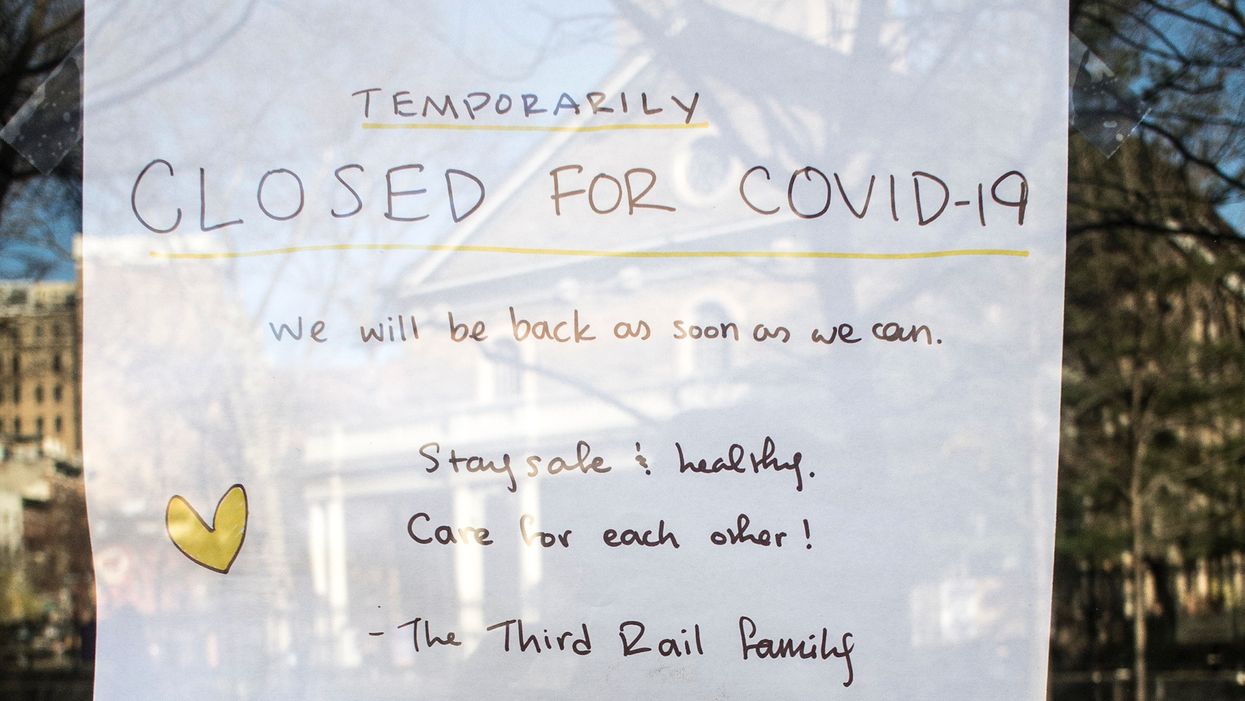
Signage concerning the unemployed due to the coronavirus COVID-19 pandemic in New York City. (Bill Tompkins/Getty Images)

Devastating
Nearly 3.3 million people filed new jobless claims over the past week, marking an astronomical jump from the previous week and painting a grim picture of the economic damage caused by coronavirus lockdowns nationwide, according to CNBC.
Projections vs. Reality: Dow Jones projected about 1.5 million new claims, which in itself would've been a massive increase over the 282,000 new claims the week before.
Individual economists had been predicting that the reality might be much worse, and they were proven correct Thursday morning when the actual number was 3.28 million.
Context: During the Great Recession, the highest number of weekly jobless claims was 665,000. The all-time record is 695,000 from October 1982.
Don't panic? Fed chairman Jerome Powell tried to reassure people Thursday morning that the spike is a short-term reflection of the circumstances, and that recovery could happen quickly.
"This is a unique situation. People need to understand, this is not a typical downturn," Powell said on NBC's "Today." "At a certain point, we will get the spread of the virus under control. At that time, confidence will return, businesses will open again, people will come back to work. So you may well see a significant rise in unemployment, a significant decline in economic activity. But there can also be a good rebound on the other side of that."
But when? Powell's message might seem more encouraging if there were some clear signs about when business might return to normal in America. But right now, the number of cases and deaths from the coronavirus are still rising rapidly, and indications from public health officials are that the U.S. is still has a ways to go.
"You've got to be realistic," said infectious disease expert Dr. Anthony Fauci on CNN. "And you've got to understand that you don't make the timeline, the virus makes the timeline. So you've got to respond, in what you see happen. And if you keep seeing this acceleration, it doesn't matter what you say. One week, two weeks, three weeks — you've got to go with what the situation on the ground is."